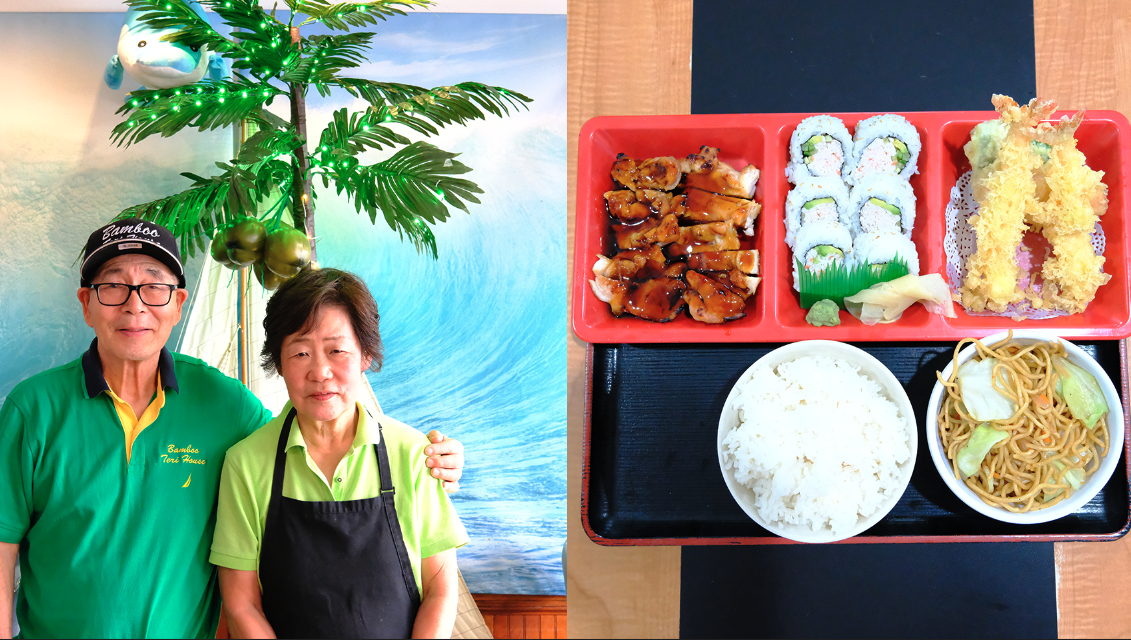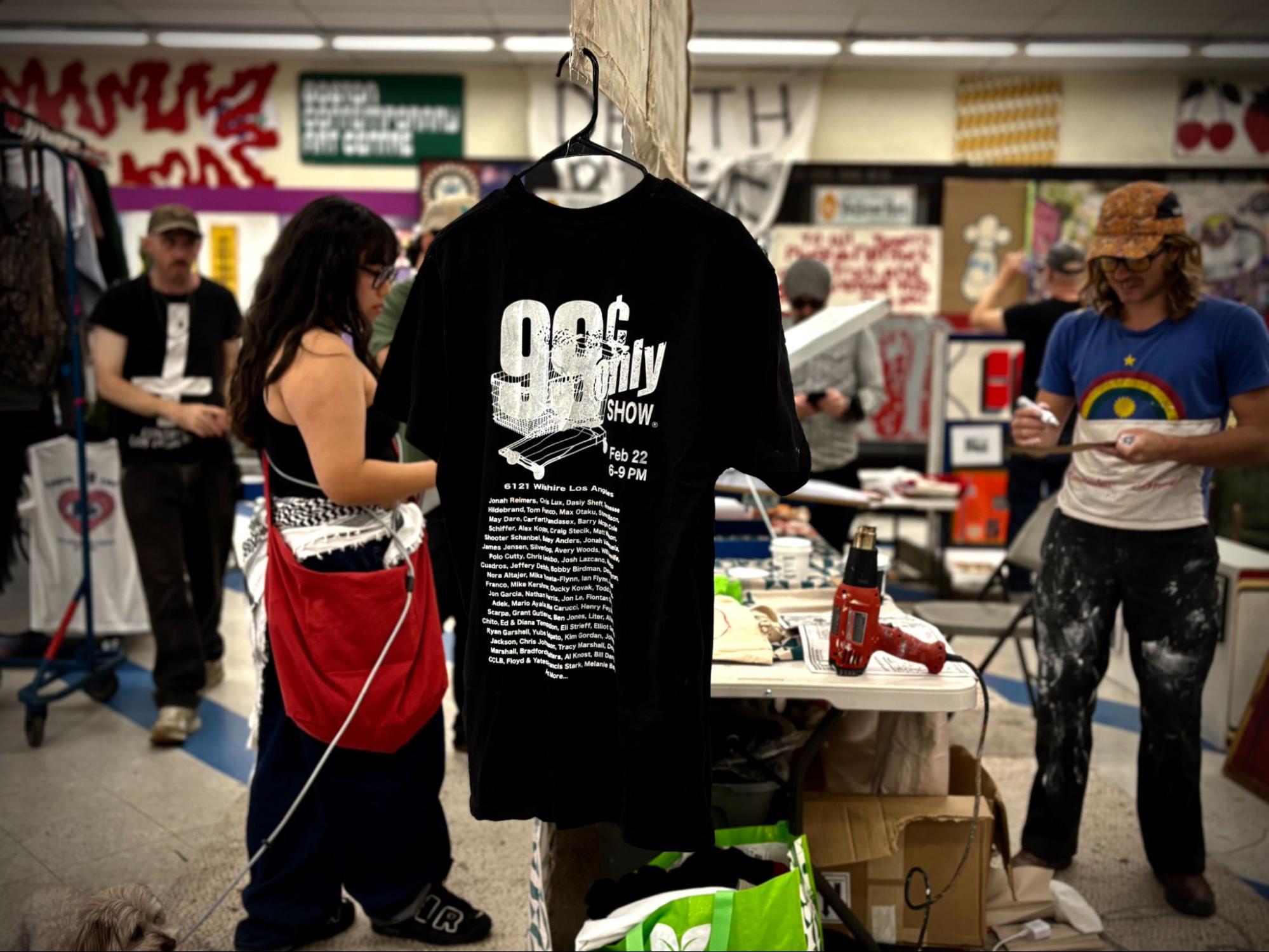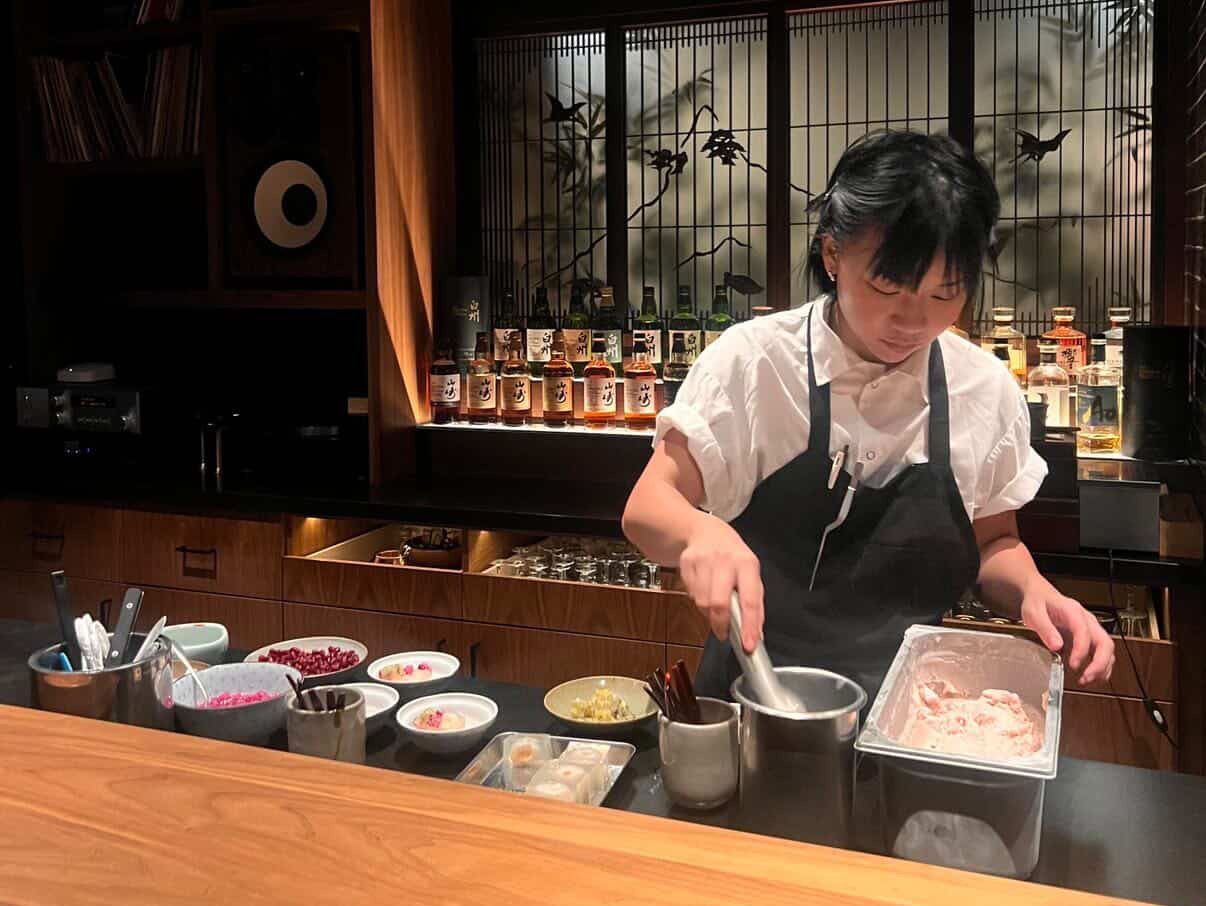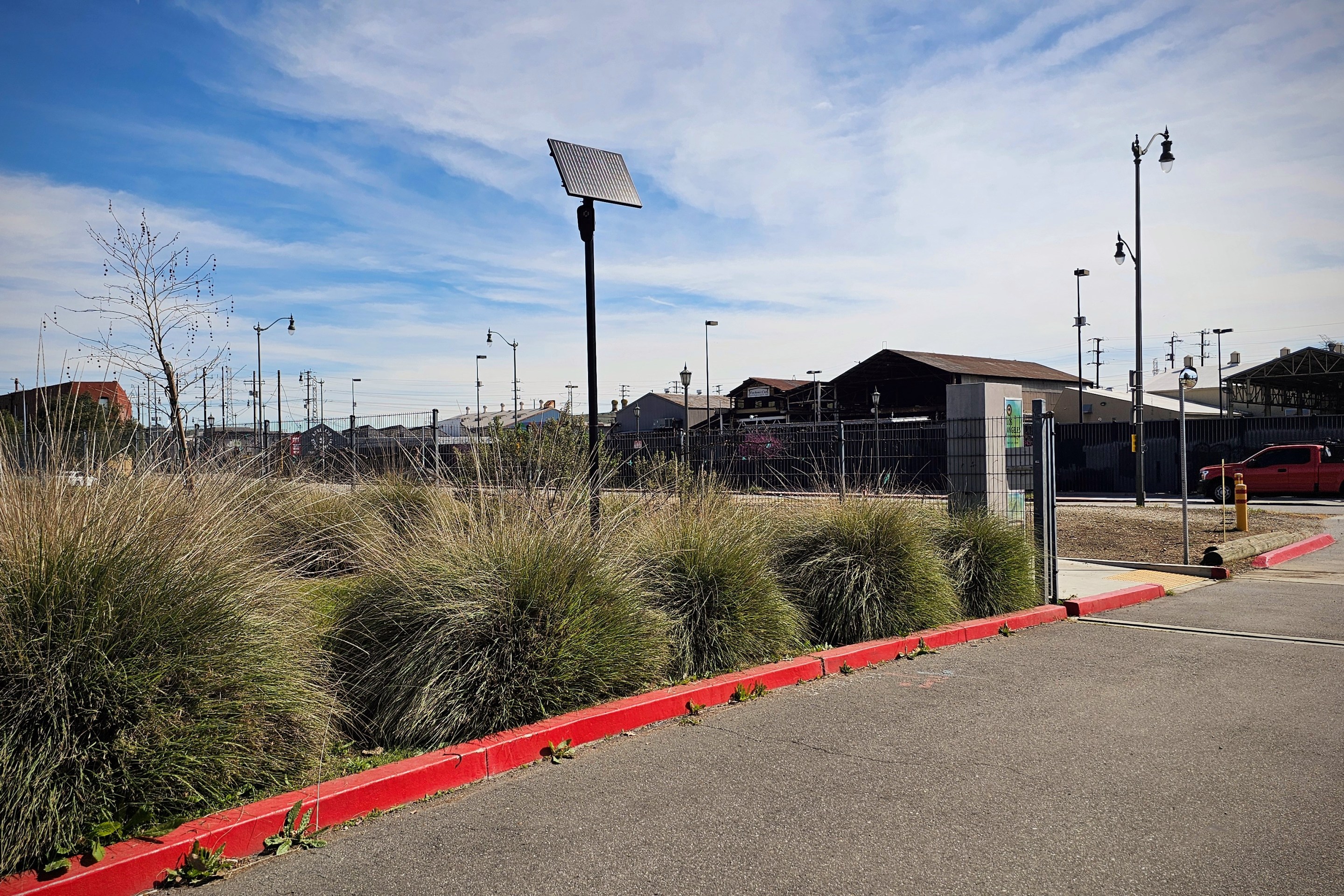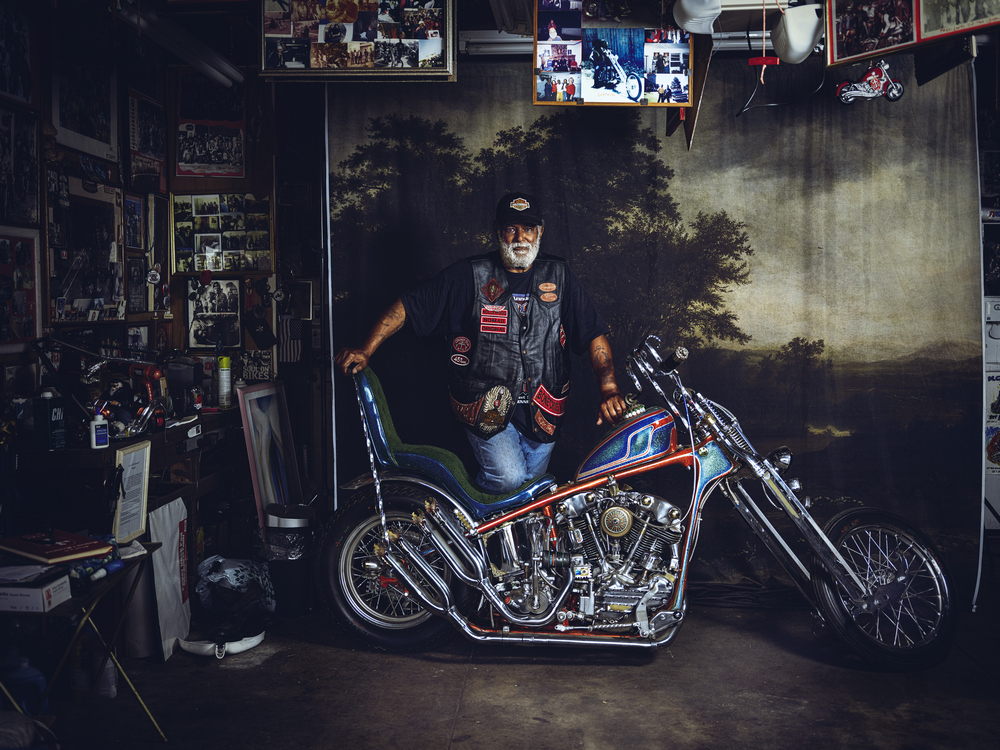The busiest time at Bamboo Teri House in Long Beach is always at lunch. A line of hungry patrons forms outside the glass door, waiting their turn at the order counter. Mostly every table is occupied, as a server crisscrosses the room with uncanny precision.
Children are staring at the diorama of a wave crashing on a beach on the restaurant's back wall. Construction workers in orange jumpers speedily gobble down their bento boxes. And bobbing heads of gray, black, and blonde hair mingle about in their chairs. It’s busy from corner to corner.
Owners George and Machiko Ota—who are both orchestrating the traffic from the front to the back of the house—wouldn’t have it any other way. For 38 years, from the Reagan era through COVID, the couple has managed the restaurant themselves.
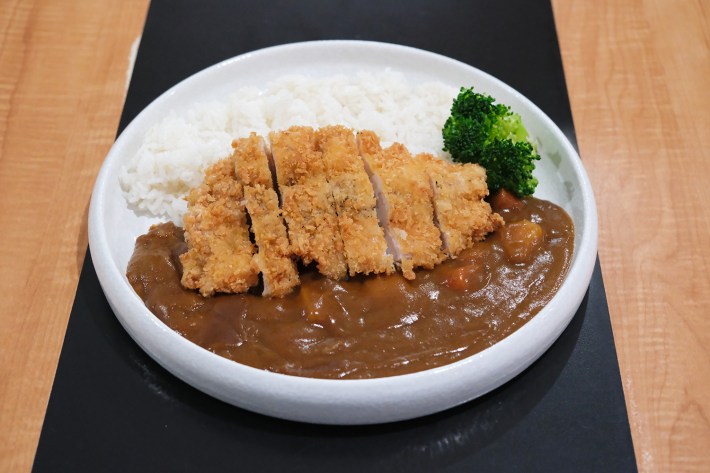
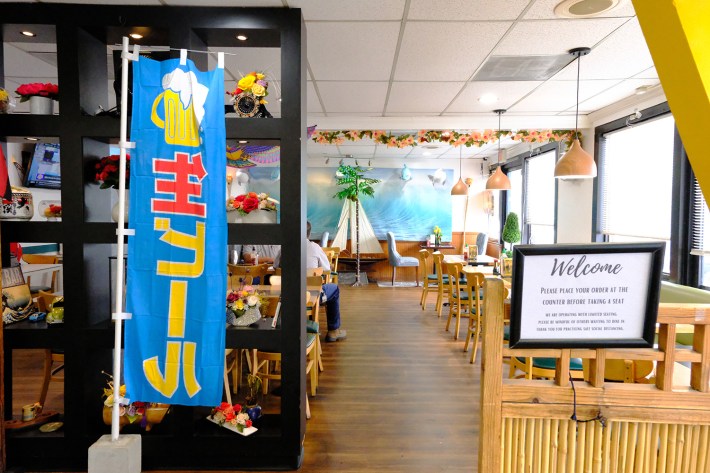
Once the traffic had waned that afternoon, I asked Mrs. Ota what their secret to their success is. She pointed at her husband—who I couldn’t pin down for five minutes to talk to, as he was walking around conversing with customers new and old—and said:
“Being stubborn. He is the most stubbornest man in the whole wide world. He likes to work.”
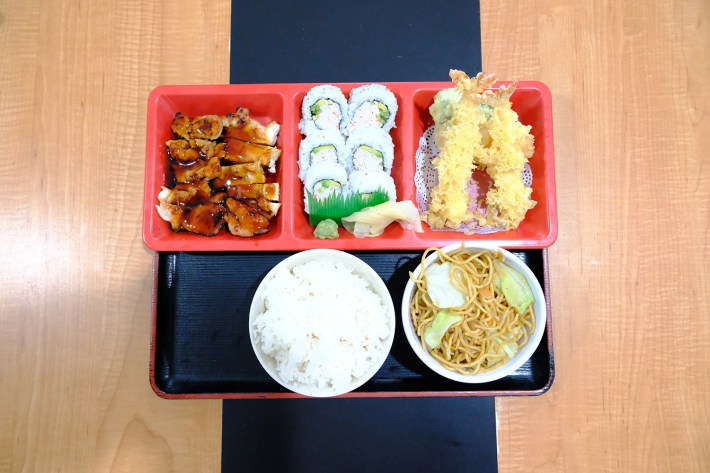
Mr. Ota was born in Tokyo and immigrated to Westside Long Beach in the 1960s. Before Bamboo Teri House, he ran a gardening business in the area.
“Lots of Japanese people cannot speak English,” Mrs. Ota explained. “Don’t have much fortune. So easy to garden, very easy to start because [you] just need truck and mowing machines. I met him at this time, and I used to help him call customers to pay the bill. That’s how we start.”
Soon, demand changed and competition became fierce in the gardening game. Also, Mr. Ota suddenly had a family to support.
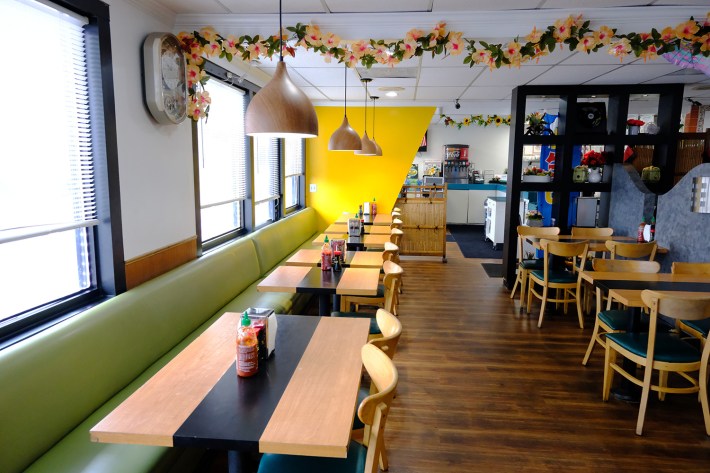

Forever the entrepreneur, Mr. Ota stumbled upon a retail space that was in need of a new tenant. He met with the landlord, who asked, “What business are you planning to run?”
“Teriyaki,” Mr. Ota said.
“Teriyaki?” Mrs. Ota laughs about it now. “We didn’t know how to make teriyaki. We didn’t have a recipe or anything. But lots of teriyaki restaurants [were] coming up. And American people started to look for teriyaki.”
Soon after signing the agreement, Mr. Ota closed his gardening business and Mrs. Ota asked a friend to teach her how to make the dish.
“Like three times a week, I drive to Fountain Valley and stayed four hours, and I learned the recipe, and that’s how we started here," she explained. "Luckily, McDonnell Douglas [an aerospace company] was right there. Busy business over there, lots of them. When we open it up, there are like 15 people on the line, all from McDonnell Douglas. They come and I was only one cashier. Twelve people can sit at first because only four tables. That’s only space we had first.”
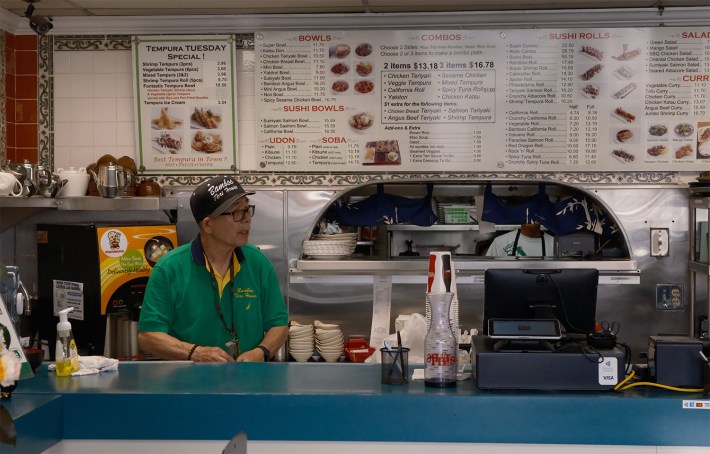
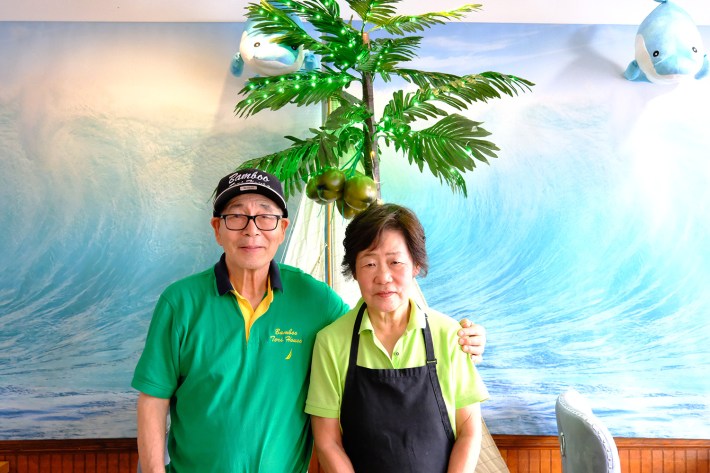
Throughout the first ten years, they expanded and leased out what was formerly a camera store next door, and expanded further by taking over a closed-down travel agency. By this time, the restaurant was frequented by regulars. It had established a delivery service that found Mrs. Ota taking orders by phone and delivering the food by herself to locations as far as Lakewood.
Mr. Ota would come home after dinner, and Mrs. Ota would stay in the early morning to prepare for the next day.
“We worked a lot," she recalled. "Now I can’t even get in my car and get on the freeway to go to the trading company. I used to do that; I cannot believe it. Now I cannot.”
Reiko Ota, one of their children, helps manage the business today—handling the accounting and marketing—from Hawaii. She was only four when the restaurant opened and began managing the register when she was 14 years old. She, too, attributes the success of the business to her dad.
“He doesn't want to succumb to retirement,” Reiko said. “My mom, she’s tired, and she's like, 'I've done enough of this restaurant.' And my dad is the other way around. He says that he wants to keep doing it until he’s basically broke. He just loves that restaurant so much. That's his baby.”
While COVID closed down many restaurants in the city, Bamboo Teri House managed to survive. Not without bruises.
“We had to let go some of our good employees at that time," Reiko recalled. "And that was really hurtful for my parents because they were really close to the employees. I was pitching the idea to them that maybe COVID is a good time to just wrap it up. My dad didn't want to, so it's just his drive. Even our employees are like, we cannot believe how much drive he has. He's 77. I just know when I'm 77, I'm not going to be working.”
Bamboo Teri House offers some of the best Japanese food in Long Beach: ramen, curry, sushi rolls, and of course, teriyaki. Reiko is also playing with the idea of adding spam musubi to the menu. But it’s all up to Mr. Ota, who altogether disappeared in the kitchen while I sat interviewing his wife.
“He thinks we need this to live,” Mrs. Ota said. “He thinks if we don’t have this, we’re going to get really old.”
On top of running the restaurant, Mr. Ota also redecorates the interior every other month, with a particular focus on changing the diorama in the back.
Perhaps it was fitting that this month, the diorama is of a big wave crashing into the beach—this restaurant is his paradise and the diorama simply completes the picture.
